Spelling practice Math Worksheets for Ages 4-8
9 filtered results
-
From - To
Boost your child's spelling skills with our engaging Spelling Practice Math Worksheets, designed specifically for ages 4-8! These interactive and fun worksheets seamlessly integrate spelling and math concepts, helping young learners develop critical language and numerical skills simultaneously. Each activity is designed to captivate your child’s interest while reinforcing their understanding of numbers, words, and the connections between them. Perfect for home or classroom use, our worksheets provide a supportive learning environment that encourages creativity and boosts confidence. Explore our extensive collection of printable worksheets and watch your child thrive in both spelling and math! Start their educational adventure today!
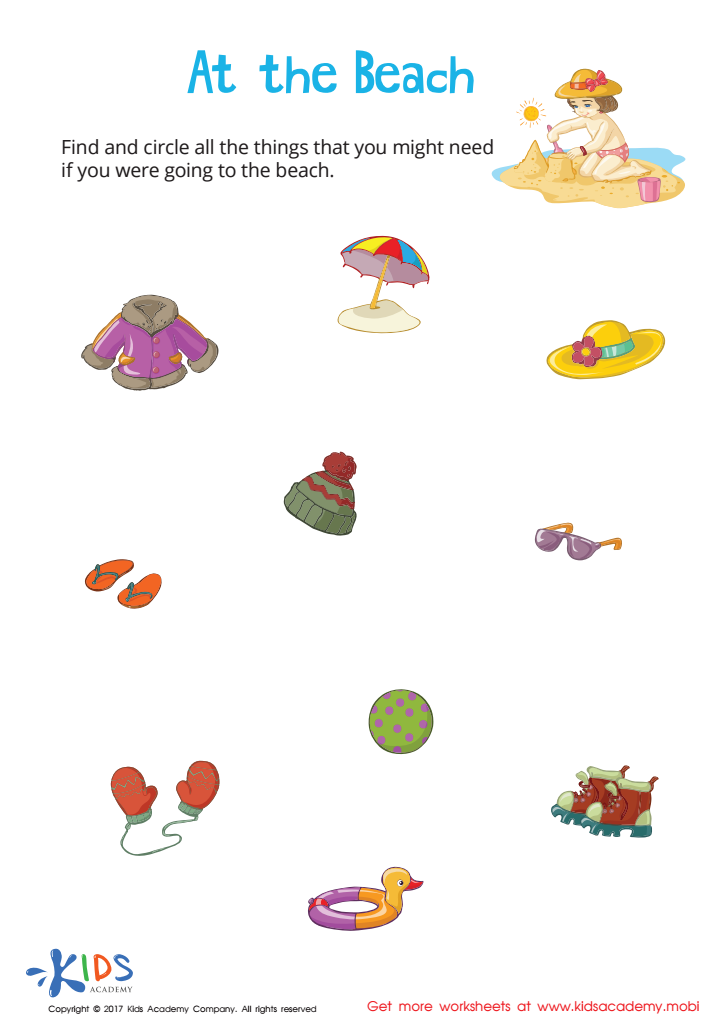

At the Beach Sorting Worksheet
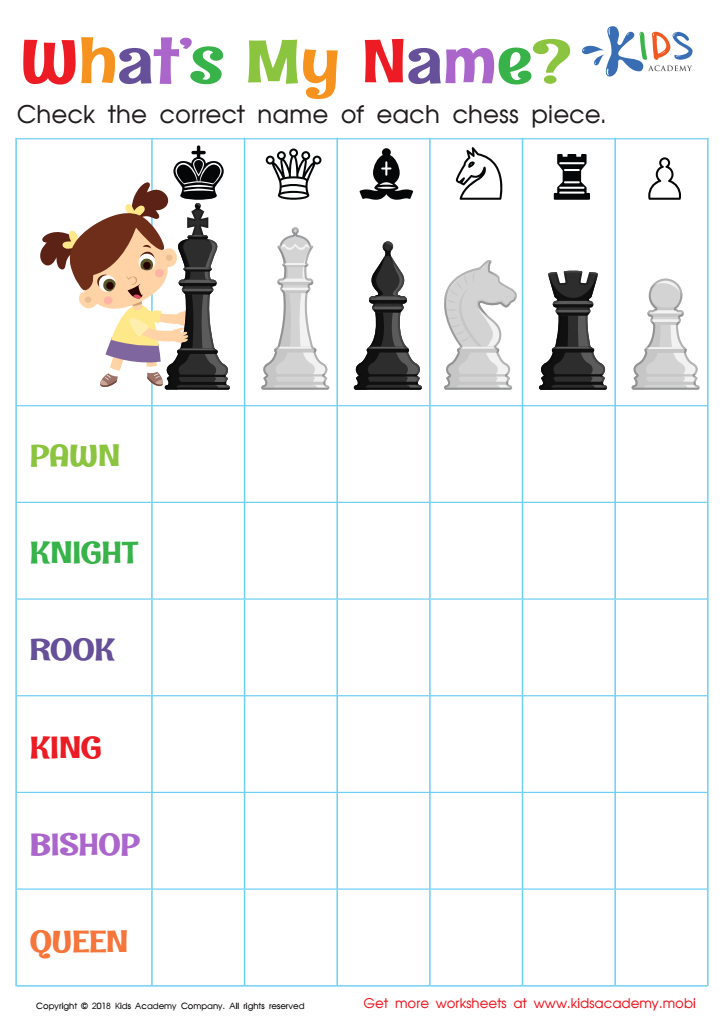

What's My Name? Worksheet
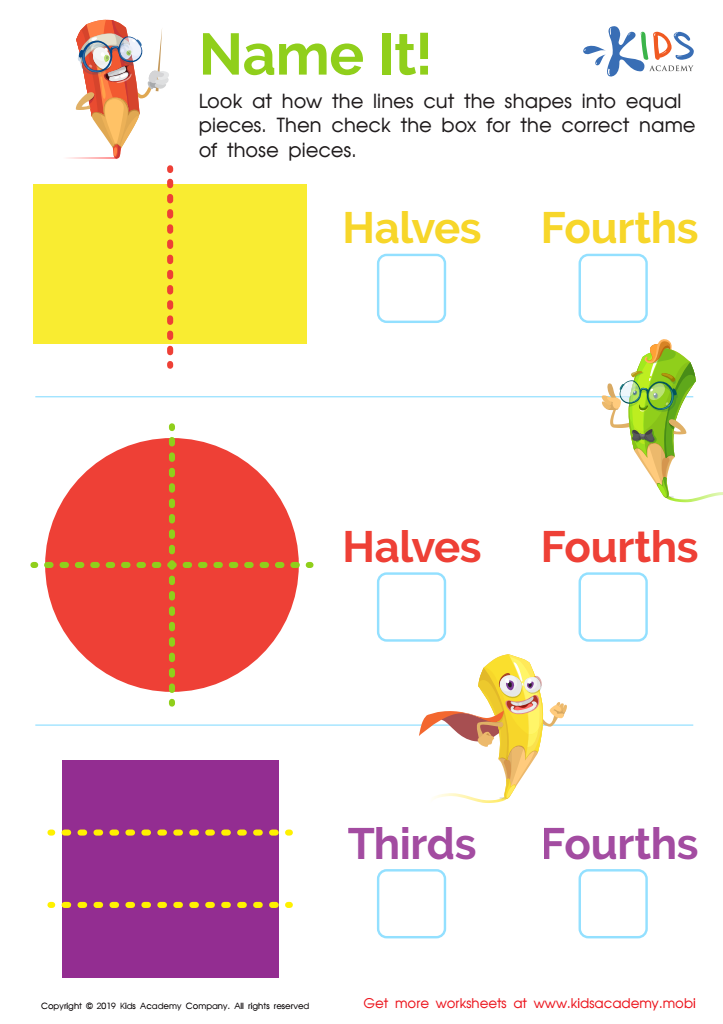

Name It! Worksheet
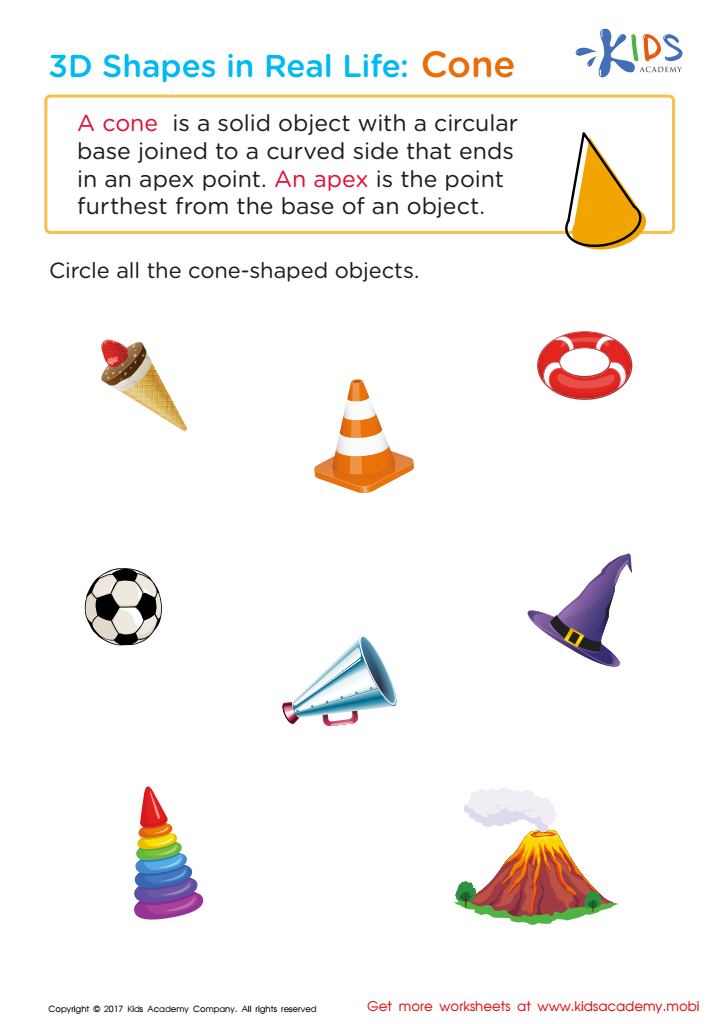

Shapes in Real Life: Cone Worksheet
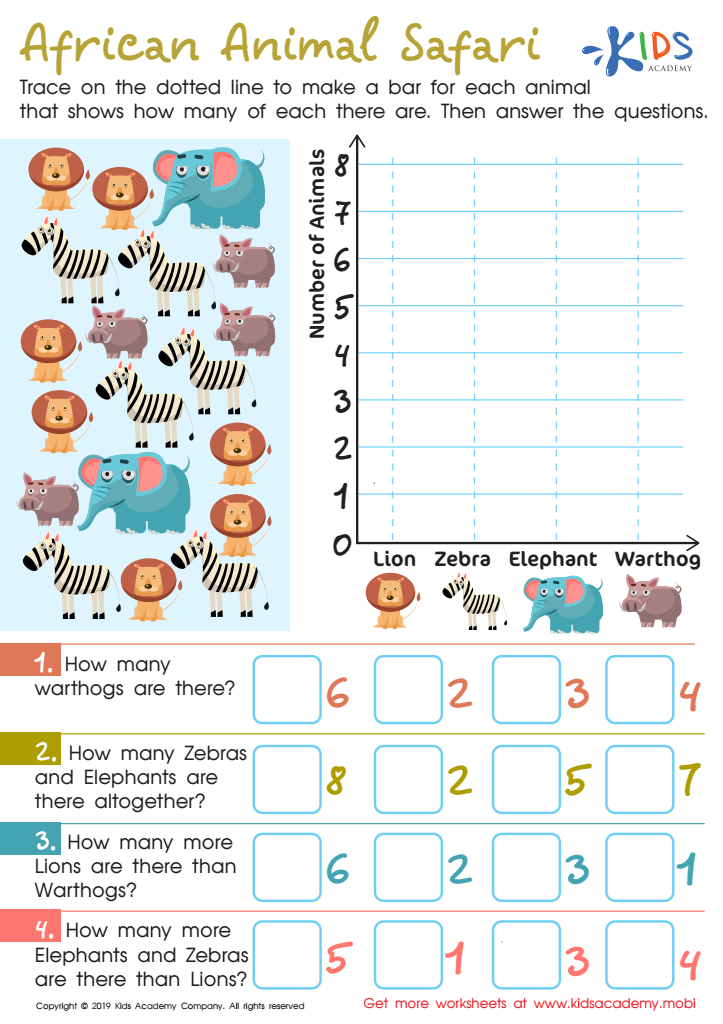

African Animal Safari Worksheet
Spelling practice in the context of math might seem unconventional, but it plays a crucial role in the holistic development of children aged 4-8. As students engage in math activities, they often encounter terms they must recognize and understand, such as "add," "subtract," "equal," and "more." Mastering the spelling of these terms reinforces their comprehension of mathematical concepts while promoting vocabulary development.
Furthermore, spelling helps enhance cognitive skills, which are vital in this formative age. By practicing spelling in math, children develop critical thinking and language skills simultaneously, fostering a deeper understanding of both subjects. This dual approach encourages children to articulate mathematical ideas clearly, boosting confidence and communication abilities.
In addition, engaging in spelling practice makes learning more interactive and enjoyable. Using playful methods, such as phonics games or spelling songs related to math, can motivate children and enhance retention.
Parents and teachers play an important role in integrating these elements into learning experiences, creating a more rounded educational journey. By emphasizing spelling in math, they help cultivate an environment where children become adept not just in numerical skills, but also in the language that describes and embeds those ideas. This foundation will support their educational growth in future years.

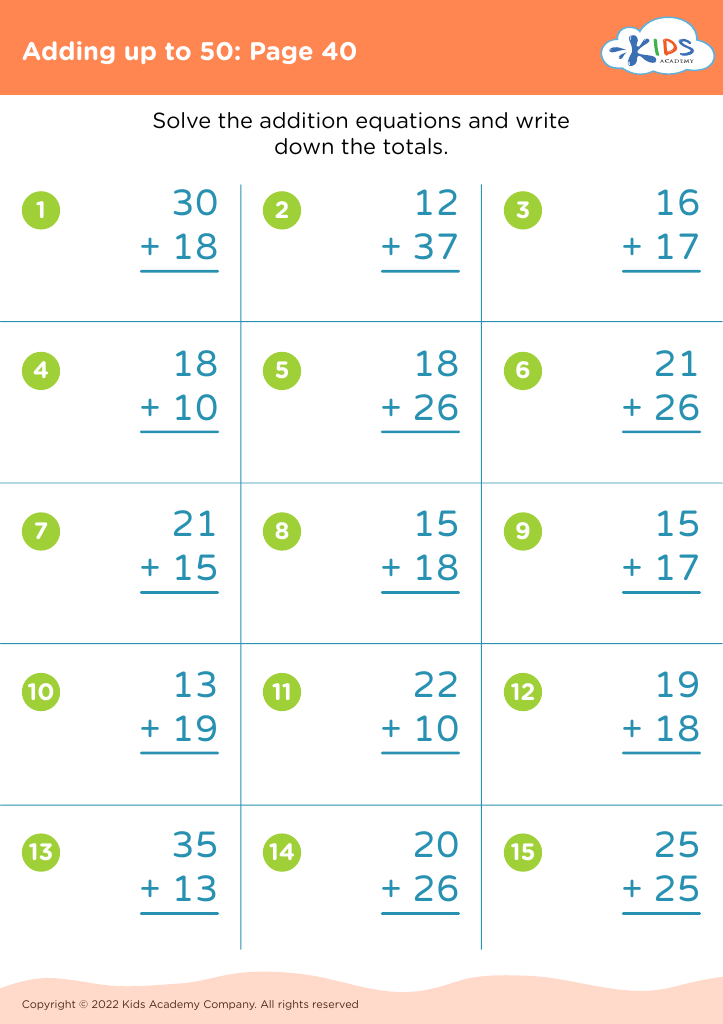
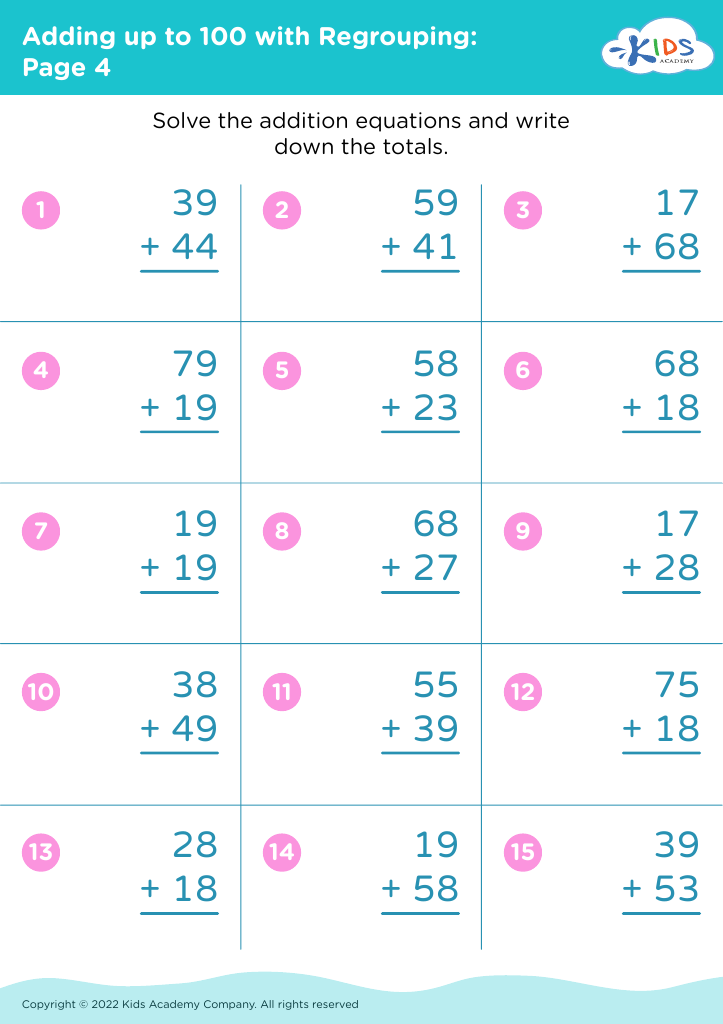
 Assign to My Students
Assign to My Students
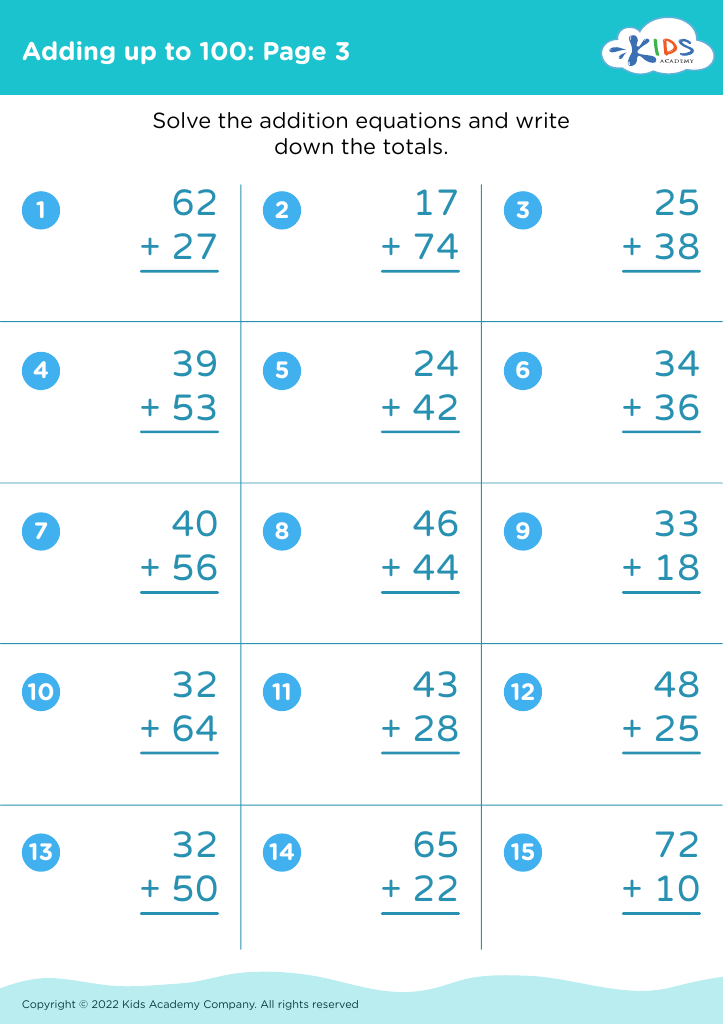



.jpg)











